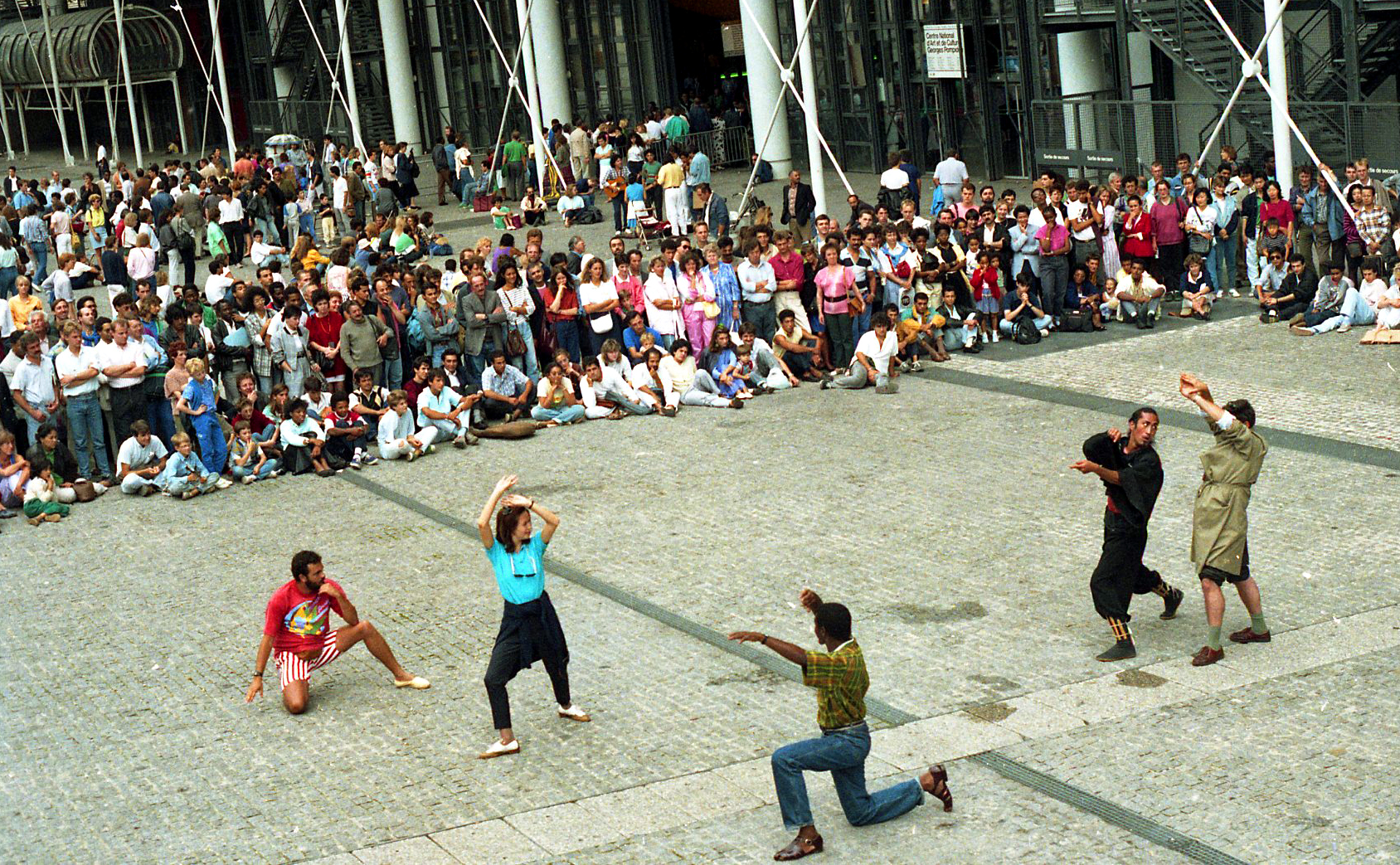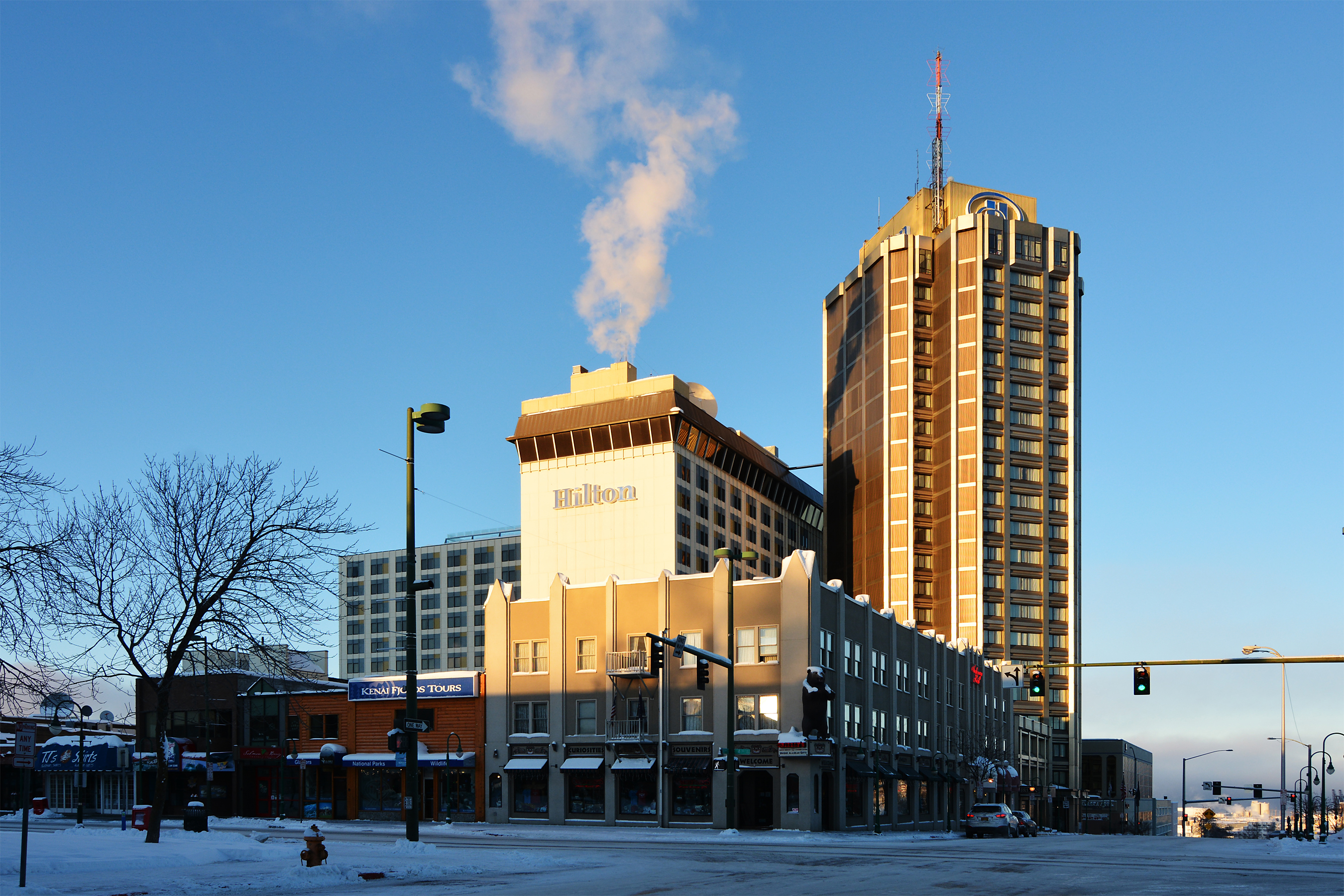|
Street Theatre
Street theatre is a form of theatrical performance and presentation in outdoor public spaces without a specific paying audience. These spaces can be anywhere, including shopping centres, car parks, recreational reserves, college or university campus and street corners. They are especially seen in outdoor spaces where there are large numbers of people. The actors who perform street theatre range from buskers to organised theatre companies or groups that want to experiment with performance spaces, or to promote their mainstream work. It was a source of providing information to people when there were no sources of providing information like television, radio etc. Nowadays, street play is used to convey a message to the crowd watching it. Street play is considered to be the rawest form of acting, because one does not have a microphone or loud speakers. Sometimes performers are commissioned, especially for street festivals, children's shows or parades, but more often street the ... [...More Info...] [...Related Items...] OR: [Wikipedia] [Google] [Baidu] |
Street Theatre In The Beaubourg Forecourt, Paris 1987
A street is a public thoroughfare in a built environment. It is a public parcel of land adjoining buildings in an urban context, on which people may freely assemble, interact, and move about. A street can be as simple as a level patch of dirt, but is more often paved with a hard, durable surface such as tarmac, concrete, cobblestone or brick. Portions may also be smoothed with asphalt, embedded with rails, or otherwise prepared to accommodate non-pedestrian traffic. Originally, the word ''street'' simply meant a paved road ( la, via strata). The word ''street'' is still sometimes used informally as a synonym for ''road'', for example in connection with the ancient Watling Street, but city residents and urban planners draw a crucial modern distinction: a road's main function is transportation, while streets facilitate public interaction. [...More Info...] [...Related Items...] OR: [Wikipedia] [Google] [Baidu] |
Slapstick
Slapstick is a style of humor involving exaggerated physical activity that exceeds the boundaries of normal physical comedy. Slapstick may involve both intentional violence and violence by mishap, often resulting from inept use of props such as saws and ladders. The term arises from a device developed for use in the broad, physical comedy style known as '' commedia dell'arte'' in 16th-century Italy. The " slap stick" consists of two thin slats of wood, which make a "slap" when striking another actor, with little force needed to make a loud—and comical—sound. The physical slap stick remains a key component of the plot in the traditional and popular Punch and Judy puppet show. Other examples of slapstick humor include '' The Naked Gun'' and Mr. Bean. Origins The name "slapstick" originates from the Italian ''Batacchio'' or ''Bataccio'' – called the " slap stick" in English – a club-like object composed of two wooden slats used in '' commedia dell'arte''. When struck ... [...More Info...] [...Related Items...] OR: [Wikipedia] [Google] [Baidu] |
Jewel (singer)
Jewel Kilcher (born May 23, 1974) is an American singer-songwriter, actress, and author. She has received four Grammy Award nominations and, as of 2021, has sold over 30 million albums worldwide. Jewel was raised near Homer, Alaska, where she grew up singing and yodeling as a duo with her father, a local musician. At age fifteen, she received a partial scholarship at the Interlochen Arts Academy in Michigan, where she studied operatic voice. After graduating, she began writing and performing at clubs and coffeehouses in San Diego, California. Based on local media attention, she was offered a recording contract with Atlantic Records, which released her debut album, ''Pieces of You'', in 1995; it went on to become one of the best-selling debut albums of all time, going 12-times platinum. The debut single from the album, "Who Will Save Your Soul", peaked at number 11 on the ''Billboard'' Hot 100; two others, " You Were Meant for Me" and "Foolish Games", reached number two on the ... [...More Info...] [...Related Items...] OR: [Wikipedia] [Google] [Baidu] |
David Bowie
David Robert Jones (8 January 194710 January 2016), known professionally as David Bowie ( ), was an English singer-songwriter and actor. A leading figure in the music industry, he is regarded as one of the most influential musicians of the 20th century. Bowie was acclaimed by critics and musicians, particularly for his innovative work during the 1970s. His career was marked by reinvention and visual presentation, and his music and stagecraft had a significant impact on popular music. Bowie developed an interest in music from an early age. He studied art, music and design before embarking on a professional career as a musician in 1963. "Space Oddity", released in 1969, was his first top-five entry on the UK Singles Chart. After a period of experimentation, he re-emerged in 1972 during the glam rock era with his flamboyant and androgynous alter ego Ziggy Stardust. The character was spearheaded by the success of Bowie's single " Starman" and album '' The Rise and Fall of Zi ... [...More Info...] [...Related Items...] OR: [Wikipedia] [Google] [Baidu] |
Robin Williams
Robin McLaurin Williams (July 21, 1951August 11, 2014) was an American actor and comedian. Known for his improvisational skills and the wide variety of characters he created on the spur of the moment and portrayed on film, in dramas and comedies alike, he is regarded as one of the greatest comedians of all time. Williams began performing stand-up comedy in San Francisco and Los Angeles during the mid-1970s, and rose to fame playing the alien Mork in the ABC sitcom '' Mork & Mindy'' (1978–1982). After his first leading film role in '' Popeye'' (1980), he starred in several critically and commercially successful films, including ''The World According to Garp'' (1982), '' Moscow on the Hudson'' (1984), '' Good Morning, Vietnam'' (1987), '' Dead Poets Society'' (1989), '' Awakenings'' (1990), '' The Fisher King'' (1991), ''Patch Adams'' (1998), ''One Hour Photo'' (2002), and '' World's Greatest Dad'' (2009). He also starred in box office successes such as '' Hook'' (1991), '' ... [...More Info...] [...Related Items...] OR: [Wikipedia] [Google] [Baidu] |
Vaudeville
Vaudeville (; ) is a theatrical genre of variety entertainment born in France at the end of the 19th century. A vaudeville was originally a comedy without psychological or moral intentions, based on a comical situation: a dramatic composition or light poetry, interspersed with songs or ballets. It became popular in the United States and Canada from the early 1880s until the early 1930s, but the idea of vaudeville's theatre changed radically from its French antecedent. In some ways analogous to music hall from Victorian Britain, a typical North American vaudeville performance was made up of a series of separate, unrelated acts grouped together on a common bill. Types of acts have included popular and classical musicians, singers, dancers, comedians, trained animals, magicians, ventriloquists, strongmen, female and male impersonators, acrobats, clowns, illustrated songs, jugglers, one-act plays or scenes from plays, athletes, lecturing celebrities, minstrels, and ... [...More Info...] [...Related Items...] OR: [Wikipedia] [Google] [Baidu] |
Music Hall
Music hall is a type of British theatrical entertainment that was popular from the early Victorian era, beginning around 1850. It faded away after 1918 as the halls rebranded their entertainment as variety. Perceptions of a distinction in Britain between bold and scandalous ''Music Hall'' and subsequent, more respectable '' Variety'' differ. Music hall involved a mixture of popular songs, comedy, speciality acts, and variety entertainment. The term is derived from a type of theatre or venue in which such entertainment took place. In North America vaudeville was in some ways analogous to British music hall, featuring rousing songs and comic acts. Originating in saloon bars within public houses during the 1830s, music hall entertainment became increasingly popular with audiences. So much so, that during the 1850s some public houses were demolished, and specialised music hall theatres developed in their place. These theatres were designed chiefly so that people could consume f ... [...More Info...] [...Related Items...] OR: [Wikipedia] [Google] [Baidu] |
Variety Theatre
Variety show, also known as variety arts or variety entertainment, is entertainment made up of a variety of acts including musical performances, sketch comedy, magic, acrobatics, juggling, and ventriloquism. It is normally introduced by a compère (master of ceremonies) or host. The variety format made its way from the Victorian era stage in Britain and America to radio and then television. Variety shows were a staple of English language television from the late 1940s into the 1980s. While still widespread in some parts of the world, such as in the United Kingdom with the ''Royal Variety Performance'', and South Korea with '' Running Man'', the proliferation of multichannel television and evolving viewer tastes have affected the popularity of variety shows in the United States. Despite this, their influence has still had a major effect on late night television whose late-night talk shows and NBC's variety series ''Saturday Night Live'' (which originally premiered in 1975) have re ... [...More Info...] [...Related Items...] OR: [Wikipedia] [Google] [Baidu] |
Government
A government is the system or group of people governing an organized community, generally a state. In the case of its broad associative definition, government normally consists of legislature, executive, and judiciary. Government is a means by which organizational policies are enforced, as well as a mechanism for determining policy. In many countries, the government has a kind of constitution, a statement of its governing principles and philosophy. While all types of organizations have governance, the term ''government'' is often used more specifically to refer to the approximately 200 independent national governments and subsidiary organizations. The major types of political systems in the modern era are democracies, monarchies, and authoritarian and totalitarian regimes. Historically prevalent forms of government include monarchy, aristocracy, timocracy, oligarchy, democracy, theocracy, and tyranny. These forms are not always mutually exclusive, and ... [...More Info...] [...Related Items...] OR: [Wikipedia] [Google] [Baidu] |
State (subnational)
A federated state (which may also be referred to as a state, a province, a region, a canton, a land, a governorate, an oblast, an emirate or a country) is a territorial and constitutional community forming part of a federation. Such states differ from fully sovereign states, in that they do not have full sovereign powers, as the sovereign powers have been divided between the federated states and the central or federal government. Importantly, federated states do not have standing as entities of international law. Instead, the federal union as a single entity is the sovereign state for purposes of international law.Crawford, J. (2006). The Creation of States in International Law. Oxford, Clarendon Press. Depending on the constitutional structure of a particular federation, a federated state can hold various degrees of legislative, judicial, and administrative jurisdiction over a defined geographic territory and is a form of regional government. In some cases, a federation is cre ... [...More Info...] [...Related Items...] OR: [Wikipedia] [Google] [Baidu] |
Local Government
Local government is a generic term for the lowest tiers of public administration within a particular sovereign state. This particular usage of the word government refers specifically to a level of administration that is both geographically-localised and has limited powers. While in some countries, "government" is normally reserved purely for a national administration (government) (which may be known as a central government or federal government), the term local government is always used specifically in contrast to national government – as well as, in many cases, the activities of sub-national, first-level administrative divisions (which are generally known by names such as cantons, provinces, states, oblasts, or regions). Local governments generally act only within powers specifically delegated to them by law and/or directives of a higher level of government. In federal states, local government generally comprises a third or fourth tier of government, whereas in unitary ... [...More Info...] [...Related Items...] OR: [Wikipedia] [Google] [Baidu] |


_03.jpg)

.png)



